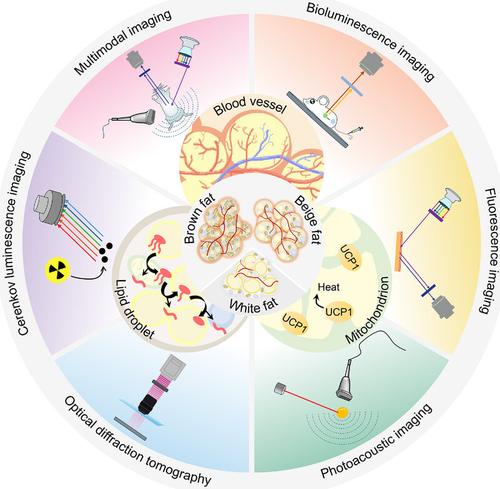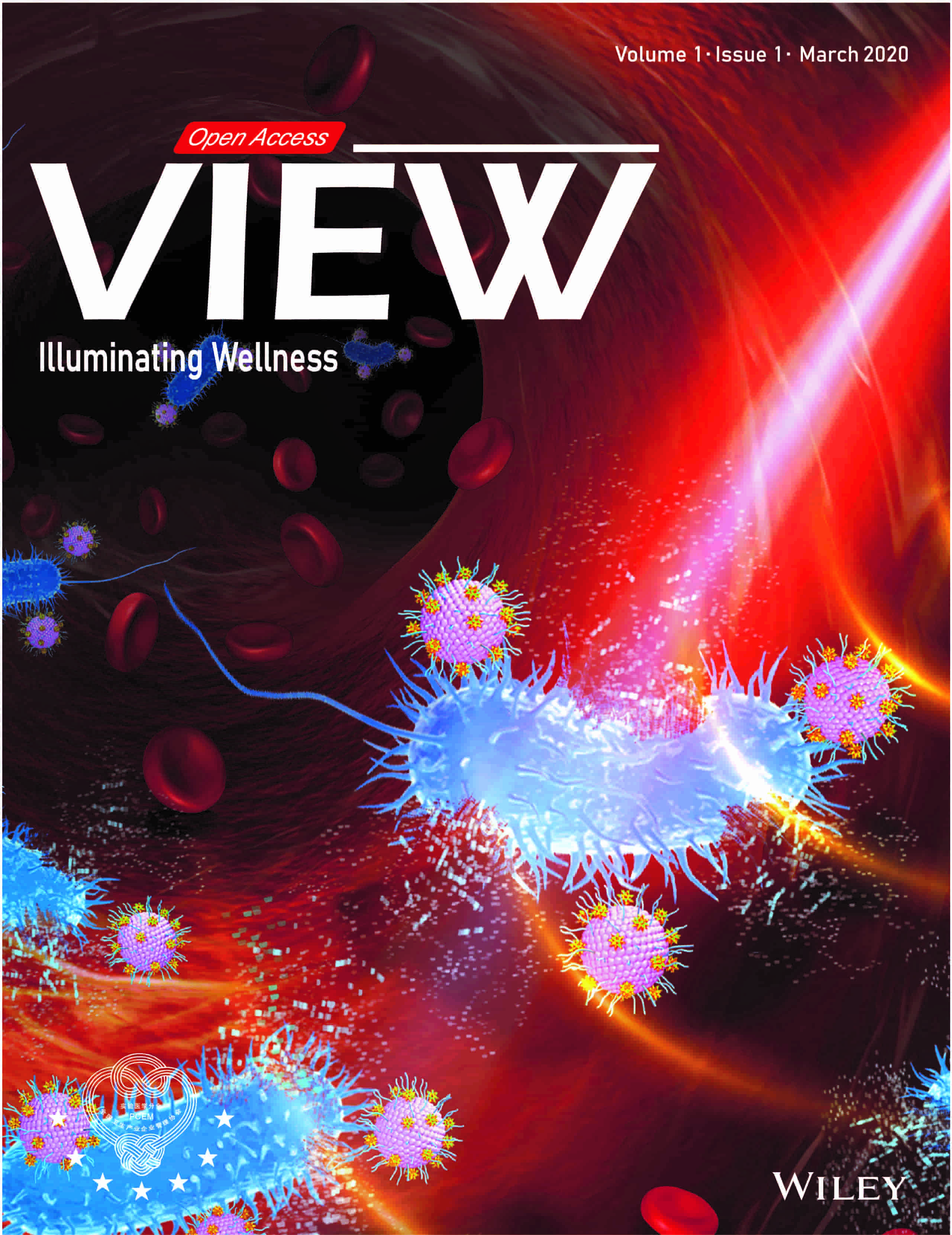棕色或米色脂肪组织的光学成像
IF 8.5
4区 医学
Q1 MATERIALS SCIENCE, BIOMATERIALS
引用次数: 0
摘要
目前,全世界每三个成年人中就有一人可能肥胖或超重。肥胖的特点是储存能量的白色脂肪过多。针对肥胖症的一种巧妙且备受追捧的策略是激活由白色脂肪或棕色脂肪转化而来的消耗能量的米色脂肪。然而,评估体内棕色或米色脂肪活化情况的现有工具有一定的局限性,如繁琐和昂贵。光学成像是一种相对直接和经济的成像技术,它利用光在多个尺度上窥探生物体的结构和功能信息。尽管有多种光学成像模式可用于检测棕色或米色脂肪,但总结相关研究的文献却十分匮乏。因此,本综述将重点关注这些光学模式,并详细阐述其成像原理、特点以及在检测棕色或米色脂肪方面的最新研究进展。并进一步总结了它们的成像目标、优缺点。作为方法论参考,本综述可指导人们选择最佳光学模式,从特定生物学角度对棕色或米色脂肪的活化进行无创剖析,最大限度地发挥光学成像在抗肥胖评估中的潜力。本文章由计算机程序翻译,如有差异,请以英文原文为准。

Optical imaging for brown or beige adipose tissue
Currently, one in three adults worldwide may be obese or overweight. Obesity is characterized by an excess of energy-storing white fat. An ingenious and sought-after strategy against obesity is to activate energy-consuming beige fat, which is converted from white fat or brown fat. However, existing tools for assessing brown or beige fat activation in vivo have certain limitations, such as being cumbersome and expensive. Optical imaging is a relatively straightforward and economical imaging technique that utilizes light to peer into the structural–functional information of living organisms at multiple scales. Despite the availability of various optical imaging modalities for detecting brown or beige fat, there is a dearth of literature summarizing relevant studies. Accordingly, this review focuses on these optical modalities and elaborates on their imaging principles, characteristics, and recent research advances in the detection of brown or beige fat. Their imaging targets, advantages, and disadvantages are further concluded. As a methodological reference, this review can guide the selection of optimal optical modalities to noninvasively profile brown or beige fat activation from a specific biological perspective, maximizing the potential of optical imaging in anti-obesity assessment.
求助全文
通过发布文献求助,成功后即可免费获取论文全文。
去求助
来源期刊

VIEW
Multiple-
CiteScore
12.60
自引率
2.30%
发文量
0
审稿时长
10 weeks
期刊介绍:
View publishes scientific articles studying novel crucial contributions in the areas of Biomaterials and General Chemistry. View features original academic papers which go through peer review by experts in the given subject area.View encourages submissions from the research community where the priority will be on the originality and the practical impact of the reported research.
 求助内容:
求助内容: 应助结果提醒方式:
应助结果提醒方式:


